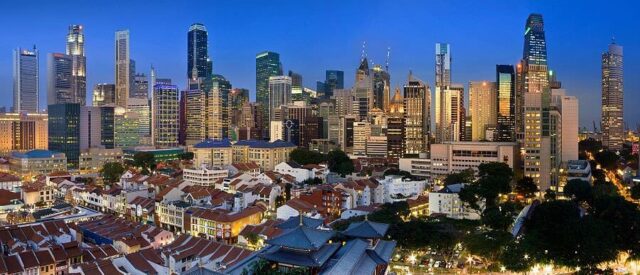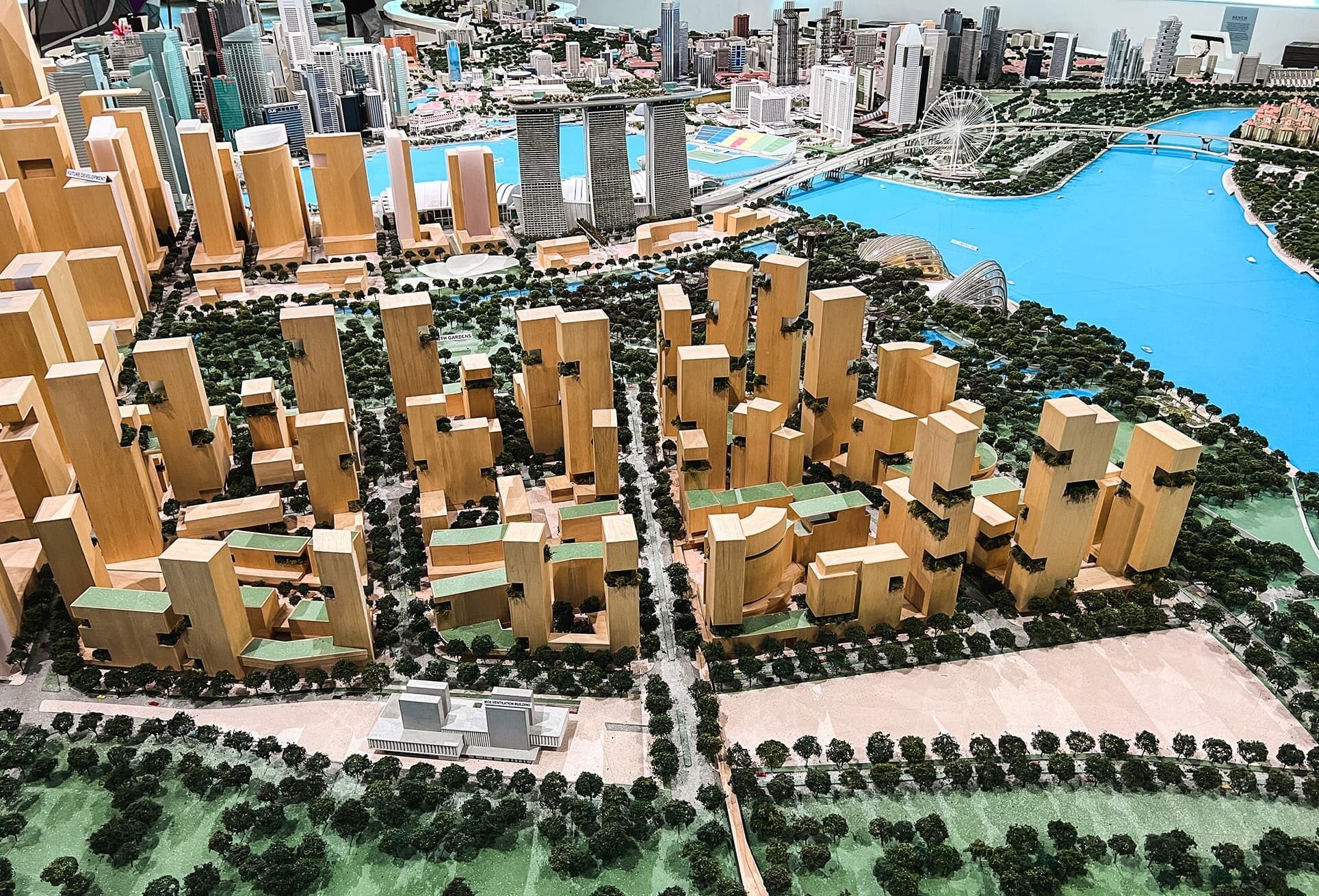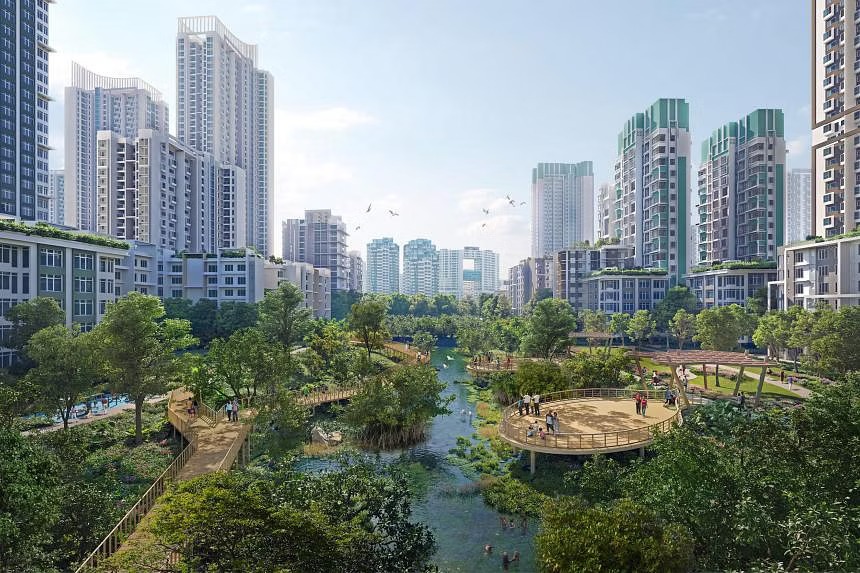
Foreign investors have long viewed Singapore as a prime destination for property investments.
The city-state’s reputation for political stability, economic strength, and a robust legal framework has always been a major draw.
But times are changing, and the question lingers—does investing in Singaporean real estate still make financial sense?
The Government’s Love-Hate Relationship with Investors

Singapore wants foreign investments but not an overheated property market. The government has been aggressively implementing cooling measures to keep speculation in check.
- Additional Buyer’s Stamp Duty (ABSD): Foreigners now pay a staggering 60% ABSD on residential property purchases.
- Loan-to-Value (LTV) Limits: Tighter restrictions on borrowing reduce leverage opportunities.
- Seller’s Stamp Duty (SSD): Flipping properties quickly? Expect to lose a chunk of your profits in taxes.
Such policies make it abundantly clear—property investment in Singapore isn’t for the faint-hearted.
Why Has the Government Taken Such a Hard Stance?
The rationale behind these cooling measures stems from a few key concerns:
- Affordability for locals: Rising demand from foreign buyers inflates prices beyond what average Singaporeans can afford.
- Speculation control: The government wants long-term, sustainable growth rather than short-lived booms fueled by speculative buyers.
- Preventing bubbles: Keeping market volatility low ensures economic stability, something Singapore prioritizes over short-term gains.
For policymakers, maintaining social harmony and economic prudence outweighs attracting foreign investors looking for quick profits.
Price Trends: Skyrocketing or Stagnating?

Despite intervention, real estate prices haven’t exactly plummeted. The luxury segment continues to attract ultra-high-net-worth individuals, but mid-tier investors find it harder to justify the price tags.
- Luxury condos in prime districts remain hot commodities for the super-rich.
- Mass-market properties face affordability concerns for both locals and foreigners.
- Rental yields hover between 2-3%, which pales in comparison to other regional markets.
Singapore is still a seller’s market—unless one enjoys being bled dry by taxes and fees. In the luxury segment, properties like the Parktown Residence condo continue to attract ultra-high-net-worth individuals.
What About New Developments?
Developers aren’t exactly slowing down. New launches in prime locations still garner significant attention, especially from well-heeled foreign buyers who aren’t affected by minor inconveniences like higher taxes.
However, secondary markets and resale properties experience longer wait times for buyers, a clear sign that the broader market has cooled down.
Those banking on price appreciation alone should reconsider—real estate in Singapore no longer guarantees effortless double-digit returns as it once did.
Are There Better Alternatives?
Investors today have choices, and plenty of them. Singapore is competing with cities like Bangkok, Kuala Lumpur, and even Dubai.
- Thailand offers lower entry prices and relaxed foreign ownership laws.
- Malaysia provides tax incentives and affordability.
- Dubai has no property taxes, making it an attractive playground for high-rollers.
Compared to those, Singapore starts looking like an overpriced luxury brand charging a premium just for the name.
How Does Singapore Compare Regionally?
Singapore’s property market is often benchmarked against its regional peers, but is it still competitive?
| City | Avg. Property Yield (%) | Foreign Ownership Restrictions | Taxes & Duties |
| Singapore | 2-3% | Strict, high stamp duties | High ABSD, SSD |
| Bangkok | 4-6% | Relatively relaxed | Lower overall |
| Kuala Lumpur | 5-7% | Encouraged, with tax incentives | Minimal |
| Dubai | 6-8% | No restrictions | No property tax |
Singapore remains a preferred choice for those prioritizing safety and stability over returns. But in a world where money is mobile, investors may opt for friendlier alternatives.
The Safe Haven Factor

Some argue that Singapore’s stability is priceless. No political turmoil, no dramatic currency fluctuations, and no risk of sudden regulatory U-turns. For ultra-conservative investors, the premium may be worth it.
But for those seeking serious returns rather than just a safe parking spot for wealth, the numbers aren’t particularly convincing anymore.
Who Still Invests in Singaporean Real Estate?
- Ultra-high-net-worth individuals: They’re less concerned about yields and more focused on capital preservation.
- Long-term investors: If the plan is to hold property for decades, Singapore’s stability remains attractive.
- Companies and funds: Institutional investors with massive portfolios still view Singapore as a strategic location.
The average foreign investor looking to turn a quick profit? They might want to look elsewhere.
Emerging Property Segments
For those still keen on Singapore, certain niches remain interesting:
- Commercial properties: Office spaces and business parks see steady demand from multinational firms.
- Co-living spaces: The rise of flexible living arrangements attracts a younger, transient workforce.
- Green buildings: Sustainability-focused developments align with global ESG trends.
- Industrial properties: With e-commerce and tech industries booming, warehouse and data center spaces are growing in demand.
- Senior living developments: An aging population presents opportunities in retirement communities and assisted living spaces.
- Luxury hospitality investments: High-end serviced apartments and branded residences are gaining traction with global elites.
- Mixed-use developments: A blend of residential, retail, and office spaces presents diversified investment potential.
Traditional residential property investments may have lost their luster, but Singapore still offers opportunities for those willing to adapt.
The Future of Singapore’s Real Estate Market

Where is the market headed? A few possible scenarios:
- Continued government intervention: Expect more policies aimed at curbing speculation and maintaining affordability.
- Slow but steady appreciation: Prices may rise, but at a more controlled pace.
- More investors shifting overseas: As Singapore tightens restrictions, foreign capital could flow to less restrictive markets.
- Increased focus on alternative property segments: Industrial, green, and senior living developments could emerge as more profitable options than residential properties.
- Rise of tech-driven developments: Smart homes, automated properties, and AI-powered real estate innovations could attract modern investors.
Those who bought in decades ago can sit back and enjoy their gains. New investors, however, have a lot more to think about before making a move.
Is It Worth the Trouble?
Foreign investors looking for significant returns may find better luck elsewhere. Between high taxes, strict policies, and limited growth potential, Singapore’s real estate market feels more like a fortress built to protect itself from investors rather than welcome them.
Unless money isn’t an issue, and owning a slice of Singapore is just for prestige, alternative destinations may offer far better value for investment dollars.
For those still drawn to Singapore’s market, adjusting expectations and exploring emerging segments could be the only way forward. Flexibility and a keen eye for non-traditional investments will be crucial for those wanting to make real gains in this ever-evolving property landscape.






